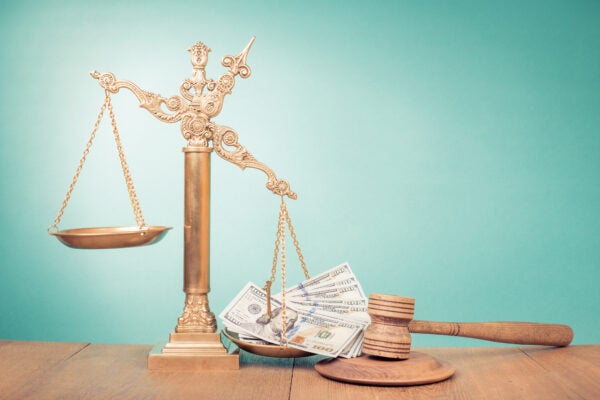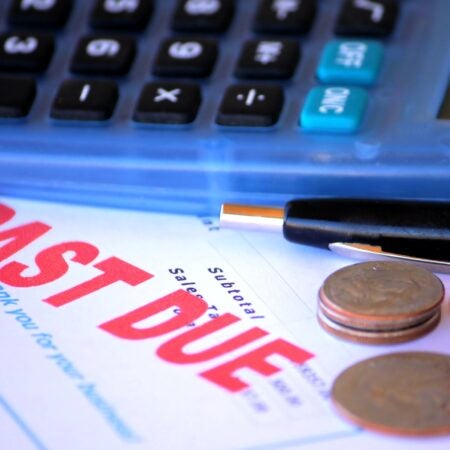
There are different times in the life of the debt collection process that you could be offered debt settlement and that makes a difference in how you initiate or respond to a debt settlement offer or agreement.
Initiating a debt settlement with the collections agency yourself
The first type of debt settlement may be possible after you have defaulted on the debt (or not made a payment in about 120 days) and the debt has been referred to a collections agency. This collection agency will do anything it can to collect on the debt, even as far as collecting just a portion of the debt, to be satisfied.
If you receive a bonus, a tax refund or some other cash windfall, this is the perfect time to call up the collections agency yourself, as I described in“Should You Ever Agree To Debt Settlement? (Part 1),” and offer to pay a lump sum that is less than the total debt owed in exchange for the debt being satisfied.
I also described why it’s never a good idea to contract with a debt settlement company to do this for you because, without money in hand, you can’t initiate a settlement with any collections agency and these debt settlement companies can’t guarantee that any creditor will accept a settlement, even after you’ve paid, among other consumer abuses.
Last year, the Consumer Financial Protection Bureau (CFPB) regulated industry debt collection practices for both original creditors and collection agencies who buy these debts so they cannot harass you or threaten you. But they can sue you to collect on the debt.
What to do if you receive a notice to appear in court for a debt collection
If you receive a notice to appear in court regarding any of your unpaid debts, you are being sued by a debt collector. This is what happens after you’ve ignored correspondence by the collections agency (or several) demanding payment because they have the right to sue you to collect on the debt as long as it is within the statute of limitations for your state.
But, most people have no idea what to do when they receive this type of scary letter.
According to the CFPB, here’s what you should do if you receive a summons to appear in court for a debt collection case:
- Do not ignore the letter and do appear in court. One thing is common in all debt collections lawsuits: If you don’t show up in court, the judgement will be in favor of the debt collector and against you, compelling you to pay the full amount of the debt including additional fees for their attorney and other collections costs. A collections judgement can garnish your wages, put a lien on your property or snatch money in your bank accounts to pay the court-ordered judgement so the best approach is to find a way to appear in court at specified time either personally or with an attorney. Ignoring the lawsuit or the letter (by refusing to sign for it) will not make it go away and will only make it worse for you.
- Consult an attorney. You may think an attorney costs too much but some local attorneys offer free community services or charge reduced fees for debt collections cases or you may be able to use free local legal aid offices or legal clinics. When it comes to debt collection cases, often you can pay a less (if not free) to the lawyer to help you settle the debt than the original amount of the debt you owe. Also, a local attorney knows the ins and outs of the debt collections legal process at your local courthouse and can help you pay the least amount possible to settle the debt. Remember: the debt collector’s lawyers will always be there and it is their job to get the highest settlement they can on that court date so you should have a lawyer in your corner, too.
What to do in court during a debt collections case
- If you’re disputing any part of the debt, bring proof: The collections agency or creditor will try to prove you owe the debt but because these debts are often sold many times, the current debt collector may not have any or all the correct information to validate all the facts of the debt, which works in your favor. If you are disputing any evidence about the debt such as the amount owed, the date of the debt, the account number listed, that the debt does not belong to you or any other erroneous information about the debt, be sure to bring proof of the correct information to present during the court action (before the judgement) to try to get a case dismissal or reach a lower settlement amount.
- Avoid “pre-trial mediation” or a “resolution conference” or “settlement conference” in court (or just outside the courtroom). Now this sounds like what you should do, and the judge may even suggest this, but an industry article in American Banker magazine described how these new common court practices speed up debt settlement case resolution, but not usually in the best interest of the consumers, costing them more money. The reason is you are only dealing with the debt collector’s lawyer and you, according to the American Banker article, and there is no impartial judge or mediator presiding over the agreement either, which gives the creditor the upper hand. You are not aware of the consumer protection laws or court rules or to what extent the debt collector’s lawyer has the power to settle the debt.
- Instead, ask the judge for an outside mediation on another day with a trained mediator. Why? Because a true mediation proceeding requires all the parties involved to be present: A corporate representative of the debt collector (who has the real power to make all the decisions to settle the debt) with their lawyer and you, the defendant, with your lawyer (or without, if you choose). Also, outside mediation can cost less than the court fees for the debt settlement.
- Make sure the settlement protects your credit. Part of any settlement whether in court or at a mediation should be to receive a settlement letter describing the debt “satisfied,” or “paid as agreed” and a confirmation to report this to all three credit bureaus. While this may not improve your credit score immediately (because older credit scoring models many lenders are still using count even paid collections negatively into your score) however, that negative impact lessens over time.)
Since the damage to your credit report was done once the debt went into collections and you are no longer paying the original creditor what you owe, your goal in a debt collections court case is to pay as little as possible to settle the case with the least amount of damage to your credit report.
Questions about credit repair?
Chat with an expert: 1-800-255-0263






